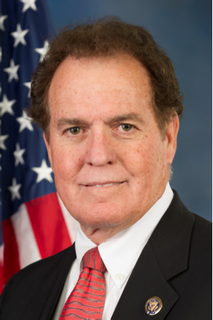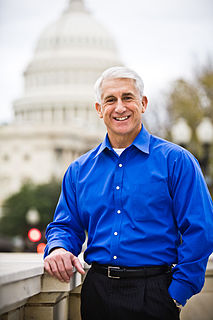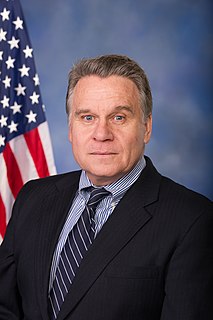A Quote by Grover Norquist
Twenty-five years ago, I created the Taxpayer Protection Pledge at the federal level. Then I brought it to the state and local level. About 97 percent of the Republicans in the House and 85 percent in the Senate have signed on, and the number of candidates who have taken the pledge is even higher. It's become a party position.
Related Quotes
Government is taking 40 percent of the GDP. And that's at the state, local and federal level. President Obama has taken government spending at the federal level from 20 percent to 25 percent. Look, at some point, you cease being a free economy, and you become a government economy. And we've got to stop that.
The federal Religious Freedom Restoration Act passed unanimously in the House, won 97 votes in the Senate, and was signed into law by President Bill Clinton. Twenty states have passed their own versions of this law, and 11 additional ones have religious-liberty protections that state courts have interpreted to provide a similar level of protection.
People who won't sign the taxpayer protection pledge, people who won't sign the property-rights protection pledge, people who won't sign the state-sovereignty pledge, who won't put their beliefs in writing, who won't endorse the Freedom Agenda, we should be asking them some very very hard questions. Very hard questions. Because you know what, they get away with it. We hear what goes on in closed doors in Olympia. We hear them say the opposite of what they say publicly.
People who read me seem to be divided into four groups: twenty-five percent like me for the right reasons; twenty-five percent like me for the wrong reasons; twenty-five percent hate me for the wrong reasons; twenty-five percent hate me for the right reasons. It's that last twenty-five percent that worries me.
Economists often talk about the 80/20 Principle, which is the idea that in any situation roughly 80 percent of the “work” will be done by 20 percent of the participants. In most societies, 20 percent of criminals commit 80 percent of crimes. Twenty percent of motorists cause 80 percent of all accidents. Twenty percent of beer drinkers drink 80 percent of all beer. When it comes to epidemics, though, this disproportionality becomes even more extreme: a tiny percentage of people do the majority of the work.
In Newark, we see a problem and want to seize it, but we run up against the wall of state government, the wall of federal government that does not have the flexibility or doesn't see problems, even. At the federal level, it's often a zero-sum game: If you win, I lose. At the local level, it's just not local that. It's win-win-win.
Because once the black man becomes the political master of his own community, it means that the politicians of that community will also be black, which also means that he then will be sending black representation or representatives not only to represent him at the local level and at the state level, but, but even at the federal level.

































